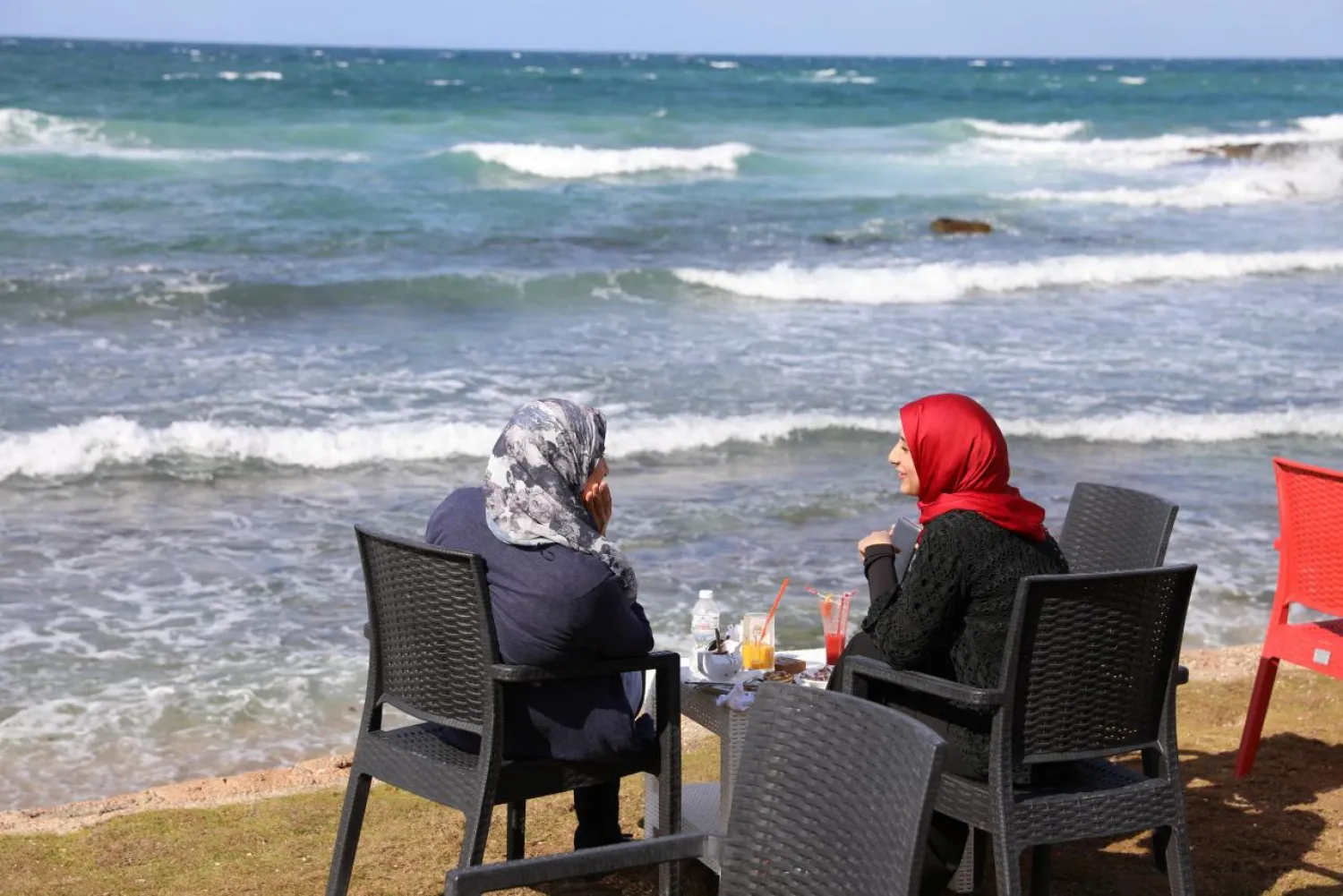A Reuters report said that fashionable cafes springing up in Libya’s capital are shutting out single men and catering for women looking for a break from the tensions of political, and personal crowding in around them.
The cafes with European names and bright decor seem a world away from the city’s traffic-clogged and still violent streets. In a socially conservative society, they also offer privacy and protection from unwanted advances.
Haneen, 27, said: “If I go with my friends, we chat about our problems and change our mood. A family place is more comfortable ... there’s no harassment or flirting.”
For owners and managers of the businesses marketing themselves as “families-only” cafes, it’s also a welcome change from the traditional clientele; hundreds of other rowdier eateries across Tripoli are packed out with young men, tables spilling out onto the streets and giant screens broadcasting soccer matches.
Abdulhameed Ghreetly, manager of At Home cafe, which looks out onto the Mediterranean said: “Family cafes are great, they are less of a headache than the cafes for young guys. You know the problems with the young guys and their quarrelling.”
Most of Tripoli’s economy has been in freefall since major battles between rival factions in 2014 left the country divided with competing governments.
The female clients are offering some respite - managers say they spend more on fancy coffees and juices than the men, who insist on taking only espresso.
Mohamed Abdurrazak, La Rambla’s owner, said: “The guys just ask for coffee and water, but women come to eat.”
The menus are heavy with pastries, pancakes, waffles and milkshakes, alongside the popular “oriental breakfast” which includes shakshouka and foul. Prices are higher, too. A coffee in a regular cafe costs two Libyan dinars ($1.50 at the official exchange rate, 25 cents at black market rates), and five or six dinars in a family cafe.
The new businesses are also flourishing in Benghazi, Libya’s second city, which suffered heavy damage during more than three years of fighting. Customers come to relieve the daily stress, said Saad al-Farjani, the owner of the Coffee Factory.
“All the time you hear of new family cafes opening. There are about 20 and there could be more,” he added.
Some see the cafes as heralding a return to relative normality, their owners say they have had little trouble from armed groups known for extortion and theft. Upmarket shops, some with international brands, have opened in smarter neighborhoods.
Opinion is split on what the cafes say about Libyan society. For some they are a sign of increasing openness, as Libyan women have little chance to socialize outside the home; for others they are a reminder of the limits on women in a country where outdoor public spaces are dominated by men.
Ghada Mohamed, a 37-year-old customer at Coffee Factory said: “I consider coming to the cafe like a change of atmosphere. I hope that cafes ... become like cafes abroad, for example, with seats outside. Unfortunately in Benghazi we cannot sit outside enough.”









